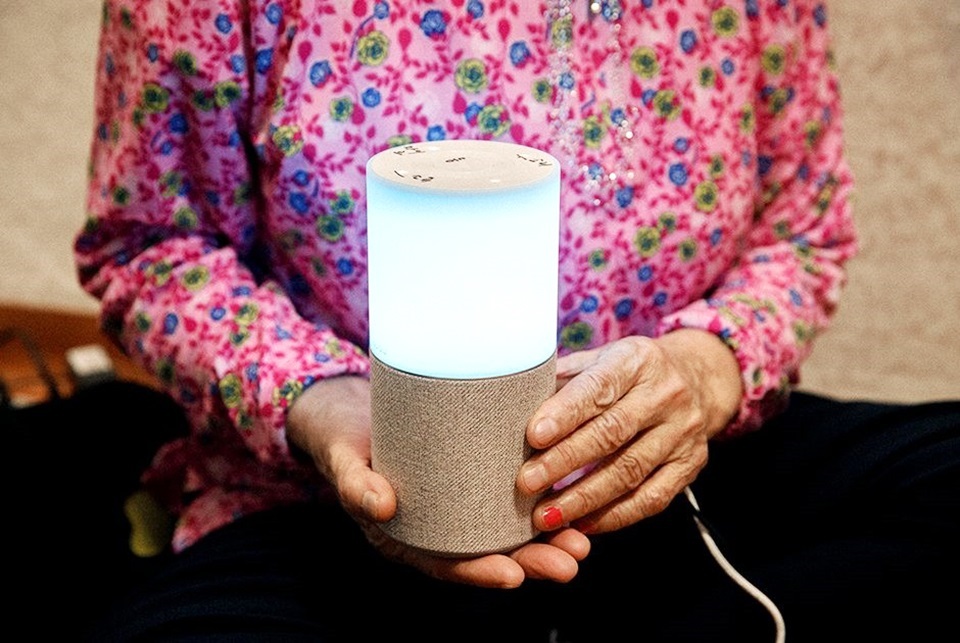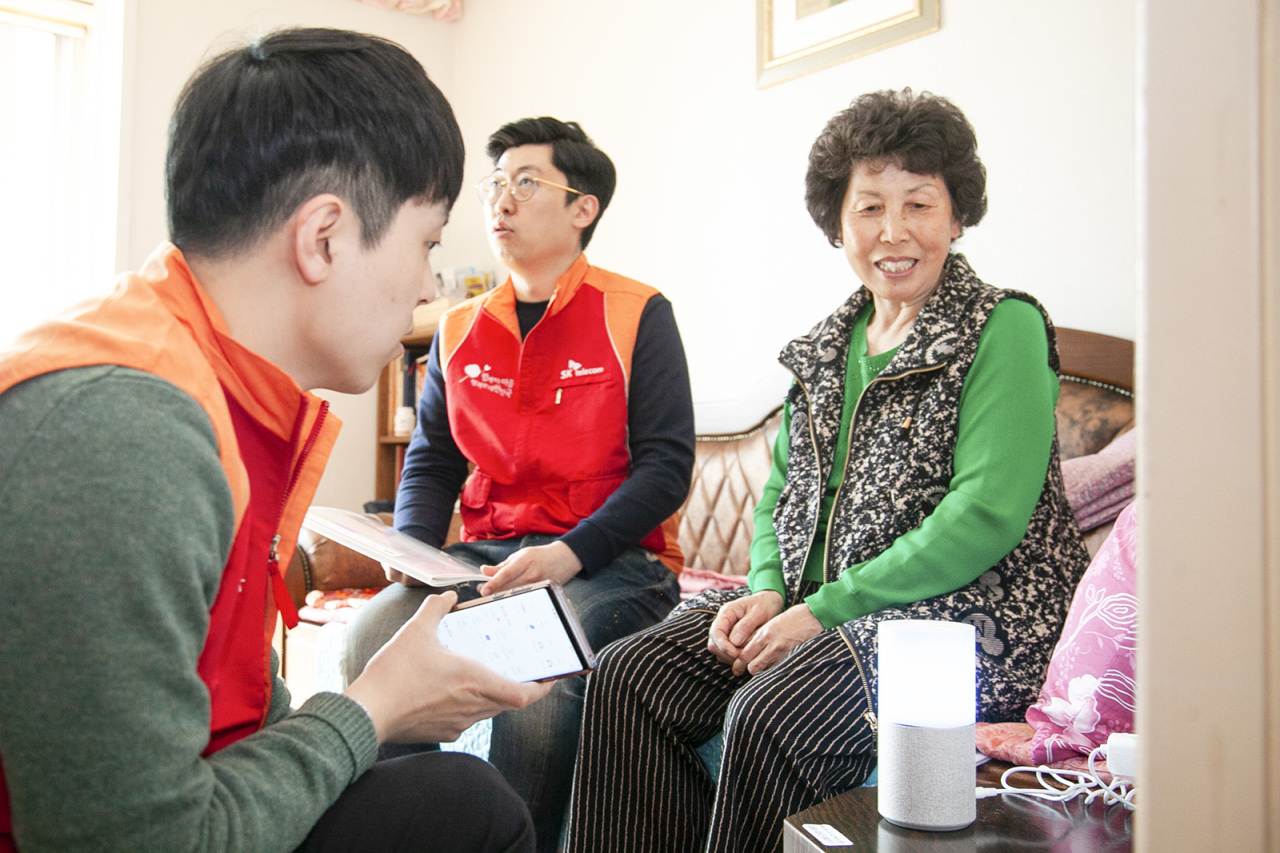South Korean telecom firms expand AI-based senior care services
By Shim Woo-hyunPublished : May 4, 2020 - 17:30

South Korean telecom firms have expanded their ICT-based senior care services recently, against the backdrop of increasing demand from an aging population.
The services mainly use artificial intelligence-powered speakers, as well as the new 5G network and virtual reality programs.
As of end-2018, there were 7.6 million people aged 65 years and over in Korea, according to the National Health Insurance Service in 2019.
“There is an increasing number of seniors who need home care services as many of them have mobility problems. The government currently provides financial support to those with mobility issues to pay for caregivers,” an SK Telecom official said.
“But those subsidies are only enough … to hire caregivers for around four hours a day. When the seniors are away from their caregivers, they can be exposed to potential emergency situations.”
SK Telecom launched its AI-based senior care service in 2019 as part of the company’s corporate social responsibility project “Happy Community.” The company has also collaborated with local governments and currently provides its senior care service, using AI speaker Nugu, to 3,200 people.
Nugu allows seniors to easily access information with voice commands and to contact others when necessary. The care center also monitors data used by the elderly to take timely action, including setting up home visits when signs of an emergency are detected.
Last month, SK Telecom signed a memorandum of understanding with Ariacare Korea, a local nursing care facility operator, to increase the number of beneficiaries.
“There are still many seniors who are not receiving enough home care services. SK Telecom will first try to distribute its AI-based services to those in need, to guarantee their safety by offering 24/7 connection. The company will also look for other business-to-business options in the meantime,” the official added.
As for KT, it has offered a senior care service since last year using an AI speaker called Giga Genie. The company partnered with a local senior facility operator to install AI speakers in each room.
“Seniors staying in the facility can make appointments by using the AI speaker, to see their doctors or just simply to use the gym,” said an official from KT.

According to officials from the local telecom firms, their AI-based solutions also provide emotional support to seniors who live alone.
“The conversations that the current AI speakers initiate still sound a bit clunky, especially when users ask emotional questions. But we have found that the seniors still feel a sense of companionship even from small talk with the AI speakers,” the SK Telecom official said.
The companies said they were continuing their research and seeking to improve their AI capabilities to enhance conversation quality. The telecom firms plan to introduce new choices such as gaming to help prevent dementia, they added.
KT said it would also make use of the 5G network and VR devices.
Last week, KT announced that the company had signed a memorandum of understanding with Pusan National University Hospital to develop VR-based rehabilitation solutions, which would enable seniors and others with mobility difficulties to take part in home-based rehabilitation programs.
“To begin, patients will have to first visit the hospital to receive instructions from therapists or caregivers. In the meantime, we will inform patients about the VR service until they get used to how the device functions,” a KT official said.
While advanced technologies can improve quality of life for seniors, getting used to using the new gadgets takes some effort.
Compared with existing AI speaker solutions, the VR-based health care service could take longer for elderly patients to get used to.
“There are still differences in learning speeds, largely depending on their ages. It usually takes days for the elderly to fully get used to how to handle the device,” the KT official said.
By Shim Woo-hyun (ws@heraldcorp.com)









![[Today’s K-pop] BTS pop-up event to come to Seoul](http://res.heraldm.com/phpwas/restmb_idxmake.php?idx=644&simg=/content/image/2024/04/17/20240417050734_0.jpg&u=)
![[Graphic News] More Koreans say they plan long-distance trips this year](http://res.heraldm.com/phpwas/restmb_idxmake.php?idx=644&simg=/content/image/2024/04/17/20240417050828_0.gif&u=)







![[KH Explains] Hyundai's full hybrid edge to pay off amid slow transition to pure EVs](http://res.heraldm.com/phpwas/restmb_idxmake.php?idx=652&simg=/content/image/2024/04/18/20240418050645_0.jpg&u=20240419100350)

